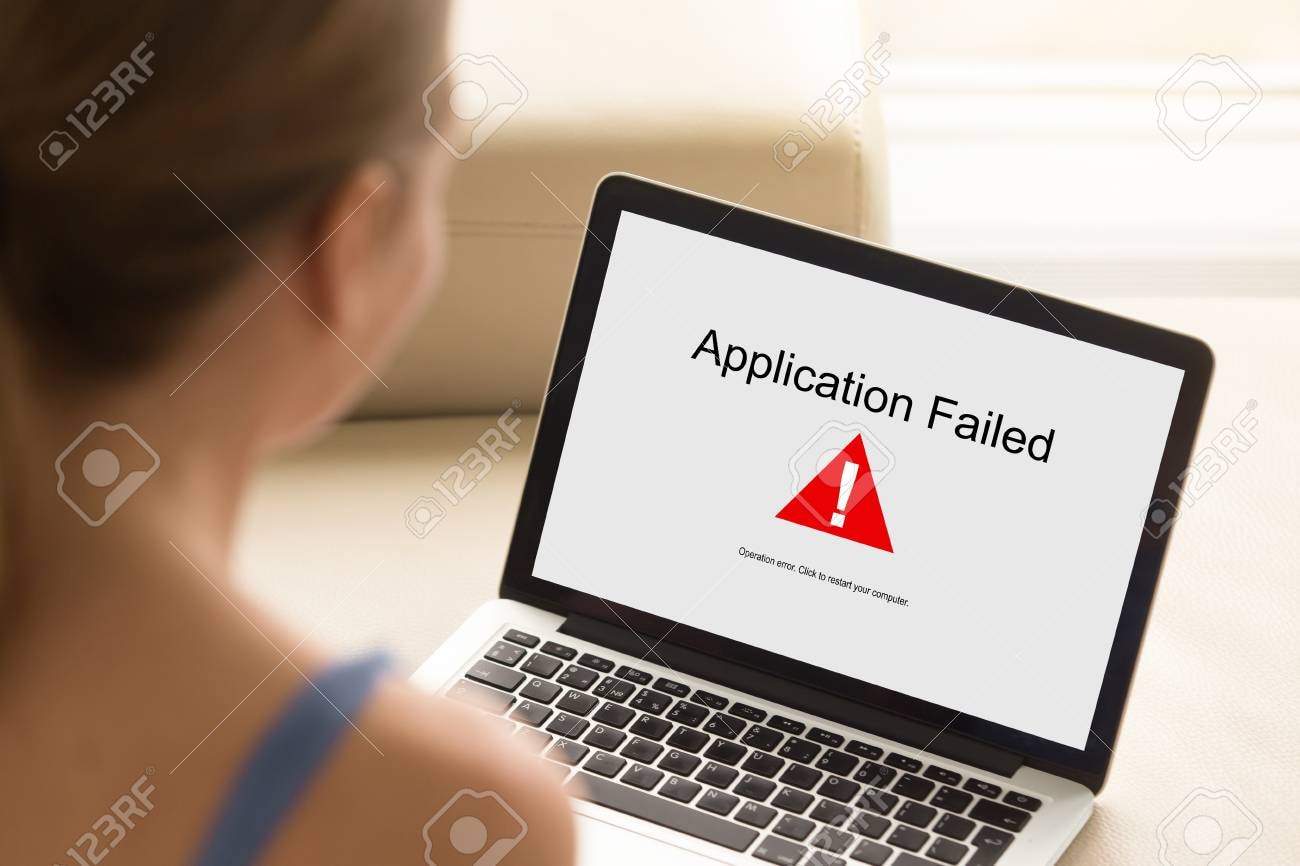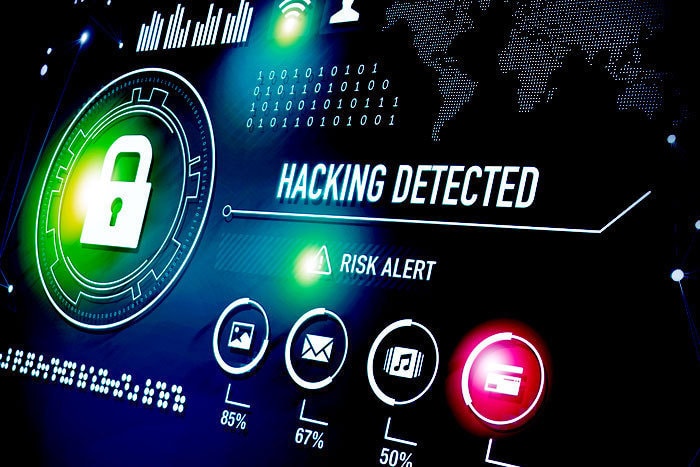7 warning signs your computer has been hacked
Your computer may have become a target for hackers without you even knowing it. Unusual signs such as your computer running slowly or freezing, strange emails appearing, or the webcam light turning on when not in use, etc. can be warning signs that your device has been compromised.
Antivirus software is the first line of defense against many online threats, but no solution is foolproof. Even if you're using a reputable security suite with a track record of excellent performance, your computer can still be compromised by hackers.
When you say your computer has been “hacked,” it’s not just an exaggeration, it’s a real threat. Cybercriminals can break into your system and take control in a number of ways.
It could be a criminal organization deploying malware on millions of devices to steal data, or an individual hacker silently spying on you through remote administration software (RAT), or even through your webcam.

If you suspect something is wrong, start by scanning your system with antivirus software, preferably one that has been rated highly in independent tests.
Even if the scan finds nothing, but you still feel something suspicious, don't hesitate to seek the opinion of a security expert or use additional testing tools.
And most importantly, keep an eye out for the following real-world signs that could indicate a stealthy attack from spyware, ransomware, or other malicious types.
1. Warning from antivirus software
Notifications from your antivirus software, whether it's the default Windows Defender or a third-party security solution, can be your first warning that your system is compromised.
If you keep getting virus or malware alerts, don't just relax because the software says it's done. Repeated alerts are a clear sign that something unusual is going on in your system.

In many cases, security software can only remove the tip of the “iceberg.” Hackers may have established control deep inside the system, using techniques to hide from conventional protection tools.
Another worrying sign is when your antivirus software suddenly becomes disabled for no apparent reason. This could be a deliberate act by an attacker to remove the last line of defense.
If you encounter these phenomena, you should not take them lightly. Take immediate action to protect your data and privacy.
2. Webcam light mysteriously turns on
If your computer's webcam indicator light suddenly turns on without you opening a video calling app or using the camera, it could be a serious sign that your system has been compromised. In many cases, hackers may have installed spyware, such as a remote access Trojan (RAT), to secretly spy on you through your webcam.
On some computers, the webcam indicator light will automatically turn on when the camera is active, but users don’t always know why. Some devices don’t have a light, but you can still check the webcam’s status via the icon in the system tray or in the “Privacy” section of the Settings app. However, the worrying thing is that sophisticated malware can completely hide its activity from common monitoring tools.
Or you could simply forget to turn off a background conference app like Zoom or Teams. But whatever the reason, if your webcam is working for no apparent reason, don’t ignore it. It could be a sign of unwanted surveillance going on.
3. Computer is unusually slow
If your computer suddenly runs slower than usual, applications take a long time to open, your browser is slow to load pages, or your entire system is sluggish, there could be something going on behind the scenes. One of the most serious causes is that your computer has been infected with malware or has been taken over by a hacker.
Some types of malware, especially cryptojacking software, can consume all of your system's CPU and GPU resources to mine digital assets for the attacker. This can cause your computer's performance to drop dramatically, even if you're not running any heavy programs.
You can open the Task Manager in Windows to see which processes are taking up resources. However, be aware that many legitimate operating system processes can temporarily use a lot of resources, such as when updating.
While slow computers aren't always caused by an attack, if they persist for an unusually long time, it's a sign you should take a closer look at your system and consider taking the necessary security steps.
4. Computer freezes, applications keep crashing
If your computer frequently freezes, displays the Blue Screen of Death (BSOD), or applications keep crashing, it could be a sign that there is a serious problem with your system.
One potential cause is malware that has penetrated deep into the operating system, installing malicious drivers or interfering with the system kernel, causing widespread instability.

Malware can also disrupt the performance of applications, causing them to crash or crash unexpectedly. However, not all incidents are caused by hackers, hardware malfunctions or software errors can also be the cause.
However, if you can't pinpoint a clear cause, or the problem occurs alongside other unusual symptoms, it's time to check for malware.
5. Strange apps and unusual pop-ups
If you encounter strange pop-ups, unknown apps popping up unexpectedly, or your browser keeps displaying unwanted ads, your system may be infected with malware. This could be a sign that your computer has been remotely accessed by an attacker or has been infected with malware that installs junkware and ads.
Not all pop-ups are a threat, however. Some computers come with manufacturer-installed applications, and many legitimate software can generate similar messages. Even Command Prompt windows that briefly appear and disappear can be part of a legitimate update process.
However, if you cannot identify the source of these windows or applications, take a serious look at your system and rule out the possibility of an intrusion.
6. Unusual changes in web browsers and extensions
One of the most obvious signs that your computer may have been compromised is unusual changes to your web browser, such as a new home page, a different default search engine, or the appearance of extensions you never installed. This is typical behavior for adware, spyware, and other types of “junkware.”
These programs are often bundled with free programs and work silently to redirect your traffic to profitable websites for the publisher. Worse, they can secretly collect browsing data, install tracking code, or inject annoying ads into every page you open.
If you encounter such changes without any apparent reason, be cautious. Restoring your browser's factory settings is only the first step. It's more important to run an anti-virus or anti-spyware tool to scan your entire system and root out any potential threats.
7. Strange email appears, password is changed
Hackers aren’t just targeting your computer, they’re also targeting the online accounts tied to your digital identity. And in many cases, the “hack” doesn’t start with your device, but with passwords leaked elsewhere.
When an online service is hacked and its user database is compromised, information like email addresses and passwords are often sold or shared publicly. If you use the same password for multiple accounts, hackers can easily access a variety of services with just one successful attempt. This is why password reuse is so risky, and why two-factor authentication (2FA) is becoming increasingly important.

Signs like strange emails from your address, unexpected password resets, or login warnings from unknown locations can all indicate that your account may have been compromised. Even if your computer passes malware scans without a problem, you should still take action.
Changing your passwords immediately, especially on important accounts like email, social media or banking, is a necessary step to protect your personal information and prevent larger consequences.
Always be vigilant and trust your intuition
It is important to note that this list of warning signs of a computer attack is by no means exhaustive. Even the most sophisticated attacks may leave no obvious traces at all.
A smart attacker will not want to attract attention, but will silently infiltrate, monitor and steal important data without affecting the performance of the machine or creating unusual signs to avoid detection. This is clearly different from regular malware, which can waste system resources such as mining cryptocurrency.
So the most important thing is to trust your instincts. If something seems suspicious, run a scan with a trusted antivirus program. If nothing unusual is found but you're still concerned, consider resetting your computer to its factory defaults.
This process is similar to reinstalling Windows, and will wipe out any malware or hacking tools that might be hiding in your system. While you will have to reset your applications and settings, it’s a small price to pay for peace of mind and optimal protection for your data.

.jpg)



